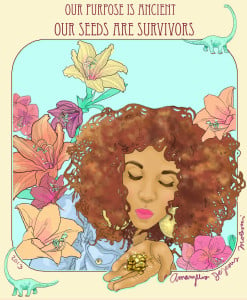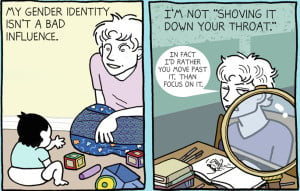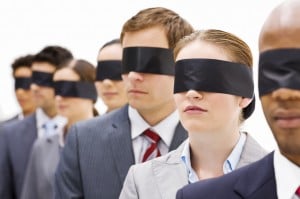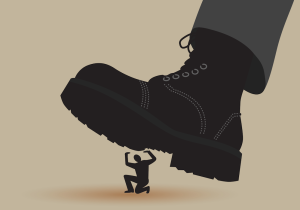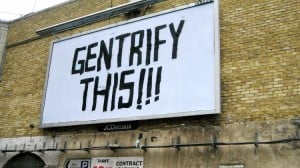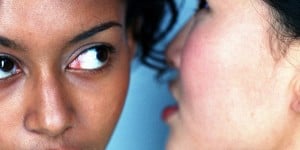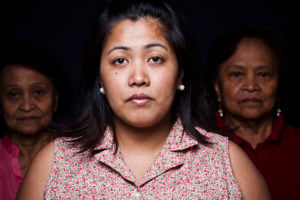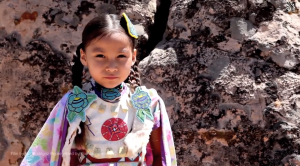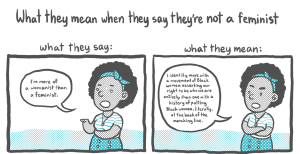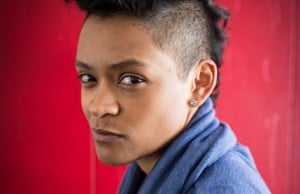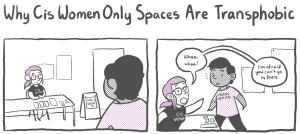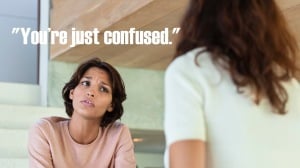A breakthrough is nothing more than an awakened breakdown.
I have had plenty of breakdowns that I have survived, but I haven’t always been fully aware of what was happening in the moment. I just kept going.
I know some tools to help get myself out of the dumps without spiraling to pits so low. But there comes a point when what you have collected in terms of wounds and scars — no matter how you have managed to carry them, rearrange them, and make them beautiful — weigh in too heavy, and you are forced to stop.
I realized I was at that place where breakdown meets breakthrough last week.
I have been struggling with a bout of depression, something I have struggled with since I was a child. Something I have coped with. Something I know how to get out of.
But this time, getting out isn’t enough.
I have decided to face my trauma head on and really heal.
Healing ourselves — body, spirit, and mind — is essential to feminism.
Many of us have been wounded by the violent patriarchal, heteronormative, and racist structures that are the pillars of capitalism, empire, and colonization.
And many of us long to be free.
Many of us are organizers, writers, artists, teachers, scholars, laborers, social workers. We work hard to build community despite the lack of support received for our liberationist endeavors.
We work hard at healing our communities who have been the benefactors of collective historical and reoccurring trauma and violence.
But oftentimes, we forget about our own personal healing in this great collective stride towards a new and more just world.
Toni Cade Bambara’s 1980 novel The Salt Eaters begins with a town healer asking this question: “Are you sure, sweetheart, that you want to be well?”
This is the question we all need to ask ourselves.
And when the answer is yes, we must enter the trenches, our own personal closets, and heal those places that still hurt.
The journey towards healing is never-ending, but don’t fret — because it does get easier.
Healing requires much time and much energy, but it is worth it. You are worth it.
We should all be invested in self-love and self care. Our communities will be better for it.
What’s wrong?
It’s 3pm, and again I forgot to feed myself. The only thing I have put in my body is a cup of coffee.
I am not well.
I used to cut myself. I no longer do that. I know what needs to be done when I have these moments. I have to push. I have to reach out to people even if I don’t feel like it. I have to exercise everyday. I write. I write. I write my way towards healing.
But still I am frustrated by these moments which come and go and come again and go again, sometimes with more pain.
But this time, this time, I want to be more conscious.
I have dealt with depression for so long that I have built it into my routine, this pain.
I want a new life.
Therefore, I have taken up two main endeavors during this moment in my life.
The first is completing my dissertation which has its own kind of stressors and demands. Yes, graduate school has certainly added trauma on top of trauma, but I am determined to finish. I am determined to make healing something that I carry with me as part of my pedagogical practice as a scholar and a teacher.
The second major endeavor that I have taken on is my personal healing from trauma. This is not about getting over anything. It’s about opening up to spaces that have been shut down or shut off for fear that they might over take me.
I want to be well.
The only way a breakdown can lead to breakthrough is through consciousness. Wake up. Wake up.
I have come to hate mornings these days because I am tired of the fight. But I do it because I am trying to break a pattern.
When I was younger, I had an uncle who had a thing for tickling us kids. He thought it was fun for kids, and I don’t think he was trying to hurt us in any way.
You always knew it was coming because he’d announce The Tickle Monster’s arrival, and then you’d be caught up. You couldn’t help but laugh.
I hated laughing then.
I hated being tickled.
I had overheard something about children being tickled to death, and I was a really sensitive kid. I just knew that one day The Tickle Monster would be the end of me. And I didn’t want to die.
I had to figure out a way to become numb to the tickle. If he tickled me and I didn’t laugh, he would stop. So I figured out how to shut my responses down.
I felt powerful. I knew how to stop the monster. I just had to stop responding.
Still today, I don’t like being tickled. Still today, I know how to control my response if someone tries to tickle me. I know how to play dead. I know how to shut off my body’s emotions.
This is an effect of trauma.
Today when I’m sad, when I’m going through a bout of something, I oftentimes forget to eat.
I will not eat. I will not be hungry. And when my loved ones find out, they worry. But I feel strong because I am okay.
I realized that this relationship with food for me is tied to a traumatic event when I was younger, a moment when I was hungry and there was food — just none for me.
I remember sneaking and searching for crumbs left behind by the person who was supposed to be caring for me. I remember that person watching me and laughing. I remember feeling ashamed. I remember wishing that they hadn’t seen me hungry. I remember shutting down then.
And now when I’m sad, I don’t eat.
I don’t eat because some parts of me are still responding to that childhood trauma. Some parts of me are trying to save myself from humiliation.
But I am no longer that child.
I work hard now to remember to eat. I work hard now to open myself up instead of shutting down. I am learning to love myself in a way that I didn’t always experience when I was a child, and it is hard.
I realize now that for all the love I received, it seems to be the trauma that sticks out, the pain that keeps me.
I don’t want that anymore. I want to love myself better.
I am learning now that this journey I am taking is new, separate from all those other moments of coping with depression.
This moment is about getting well. And getting well is painful, but this pain is productive. It is not a matter of coping or adjusting. It is a matter of sitting, addressing, and facing.
Jasmine Lee Cori’s book, Healing from Trauma: A Survivor’s Guide to Understanding Your Symptoms and Reclaiming You Life, has been very helpful for me these days. She reminds us, “When we commit ourselves to healing, we open up to a different type of suffering — the pain that is part of the healing process. This was the pain that was too overwhelming to feel before.”
The healing process is about grief.
It is about going back to the places of loss and healing.
It is not about drowning in the past. It’s about moving through and opening up so that you no longer have to live with fear and numbness.
Instead of shutting down responses, you are able to take control of your life and create it.
Are you ready to be well?
Are you ready to commit yourself to this radical feminist act?
Many of us do social justice work. Many of us want to change the world — we want to heal the world. Many of us prioritize what is outside instead of what we hold inside.
But what we hold, what we carry, must be valued as much as our visions of a new, more just world.
Indeed, a new world is only possible if we become new people.
We must bring radical love back to the center of our movements. Radical self-love and self-care are central components to social justice.
How can we do the work outside ourselves if we can’t do the work within ourselves?
Recently, I have become a part of a campaign called Brothers Writing to Live.
It’s a letter-writing project where we write letters to create open discourse around healing and self-care for Black men.
We are in world that teaches us — as people of color, queer people, women — that what we feel must be ignored if we are to be respected.
Truly, the personal cannot be severed from the political.
Our everyday experiences matter. Our everyday pains, losses, and gains matter.
They matter for your own personal survival, but they also matter for the survival and growth of a community.
One of our assignments was to write a letter to our childhood selves. You can check out all of the letters here:
I close with an excerpt from my letter to Baby Kai:
“You will carry a collection of scars and bag full of crap (guilt, shame, trauma, violence) a long way before you reach a place where can healing can begin.
The healing process doesn’t end. It changes. But you will always need to be healing. Be patient with yourself.
I’m telling you this because I love you. I’m telling you this because as much as I want to go back and rescue you, I cannot.
But know this: You will survive. I need you to survive.”
What would you write to your younger self today?
[do_widget id=”text-101″]
Kai M. Green is a filmmaker and a spoken word poet who examines through film and poetry questions of gendered and racialized violence and a PhD candidate in the department of American Studies and Ethnicity at USC. Learn more about him on Youtube and his blogs, Kai’s (Bi)Weekly Jams and In The Darkness: My Dissertation Journey. Follow him on Twitter @Kai_MG.
Search our 3000+ articles!
Read our articles about:
Our online racial justice training
Used by hundreds of universities, non-profits, and businesses.
Click to learn more


